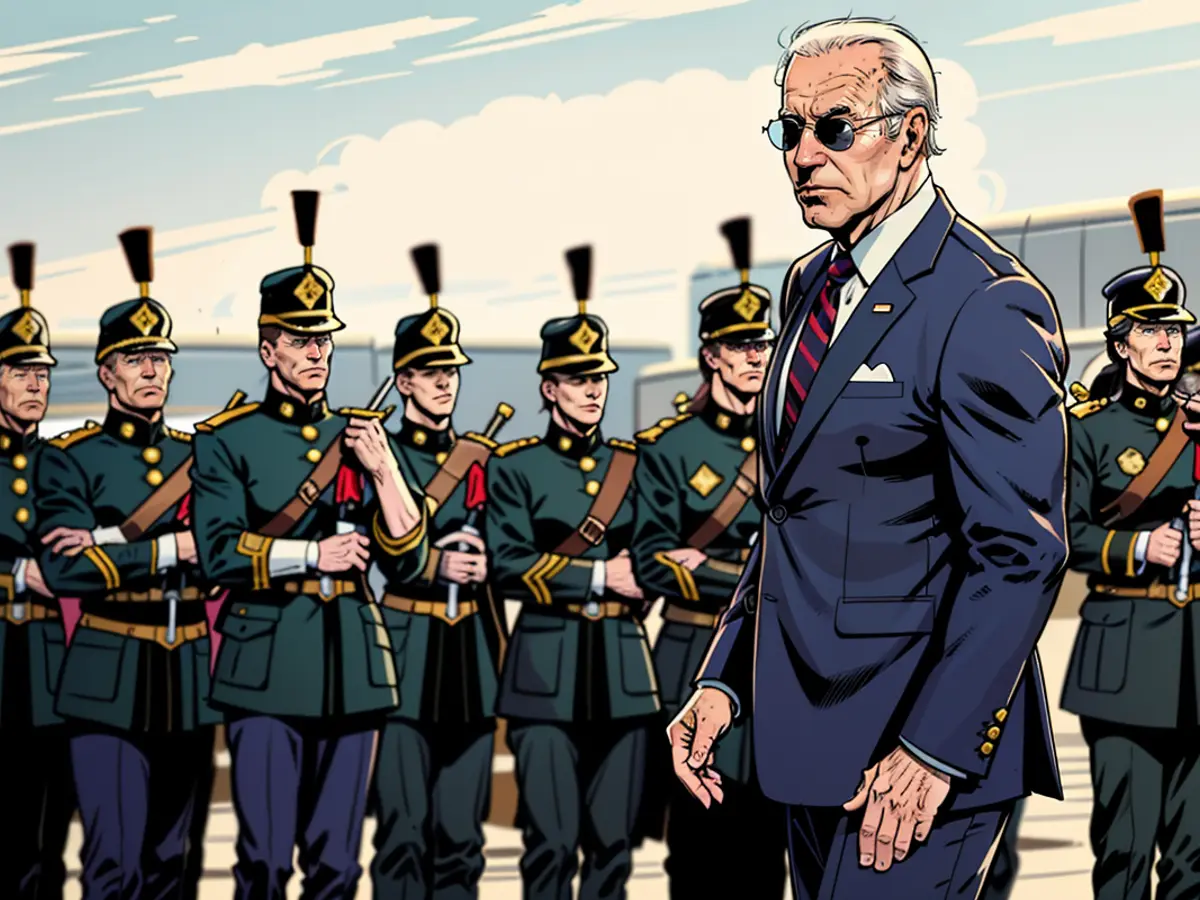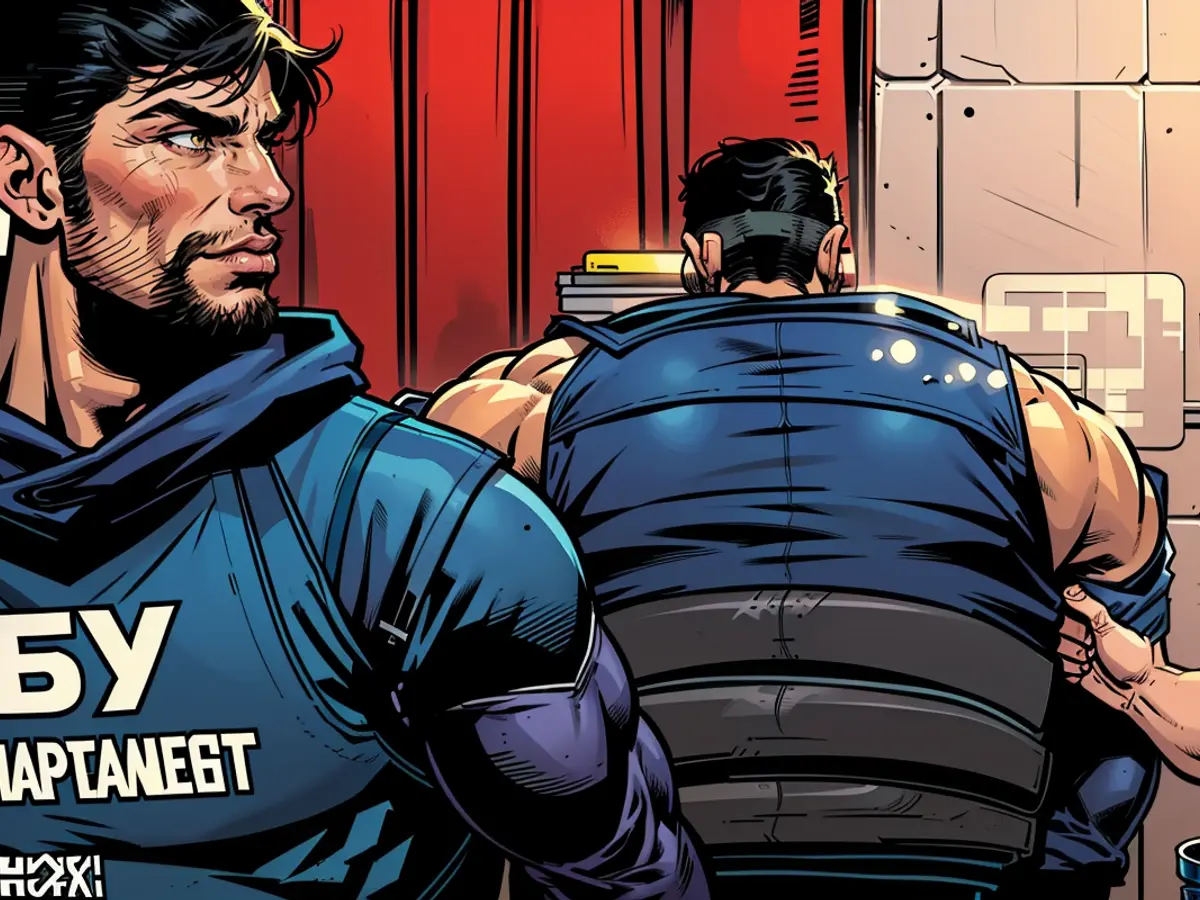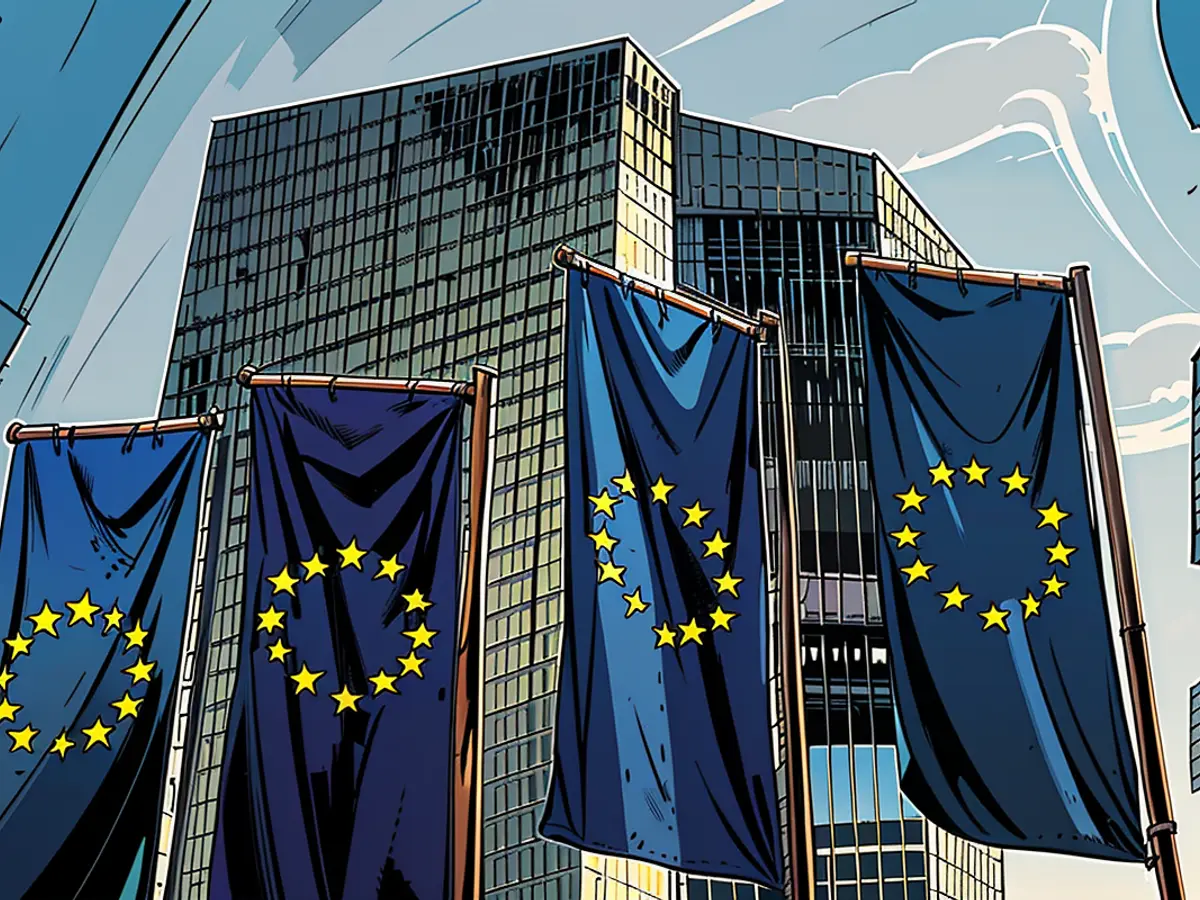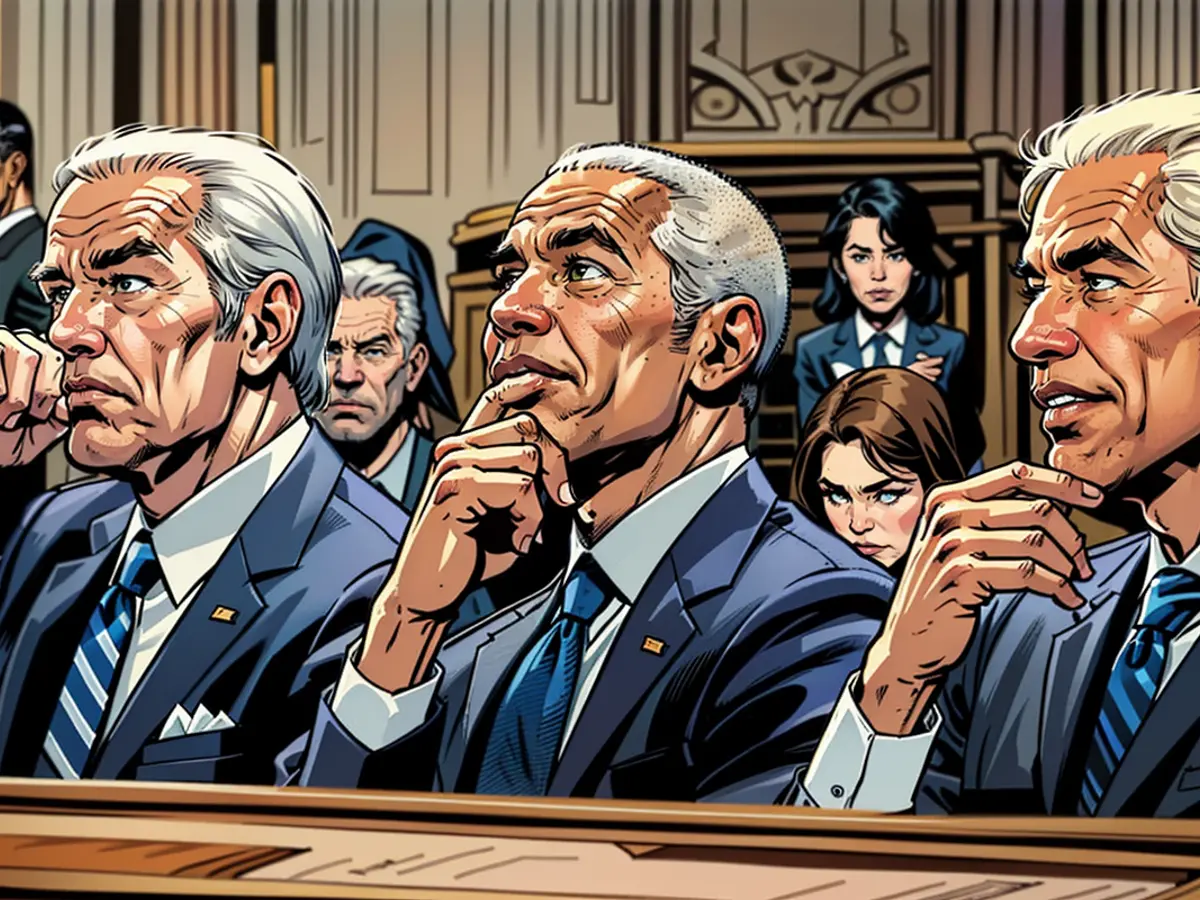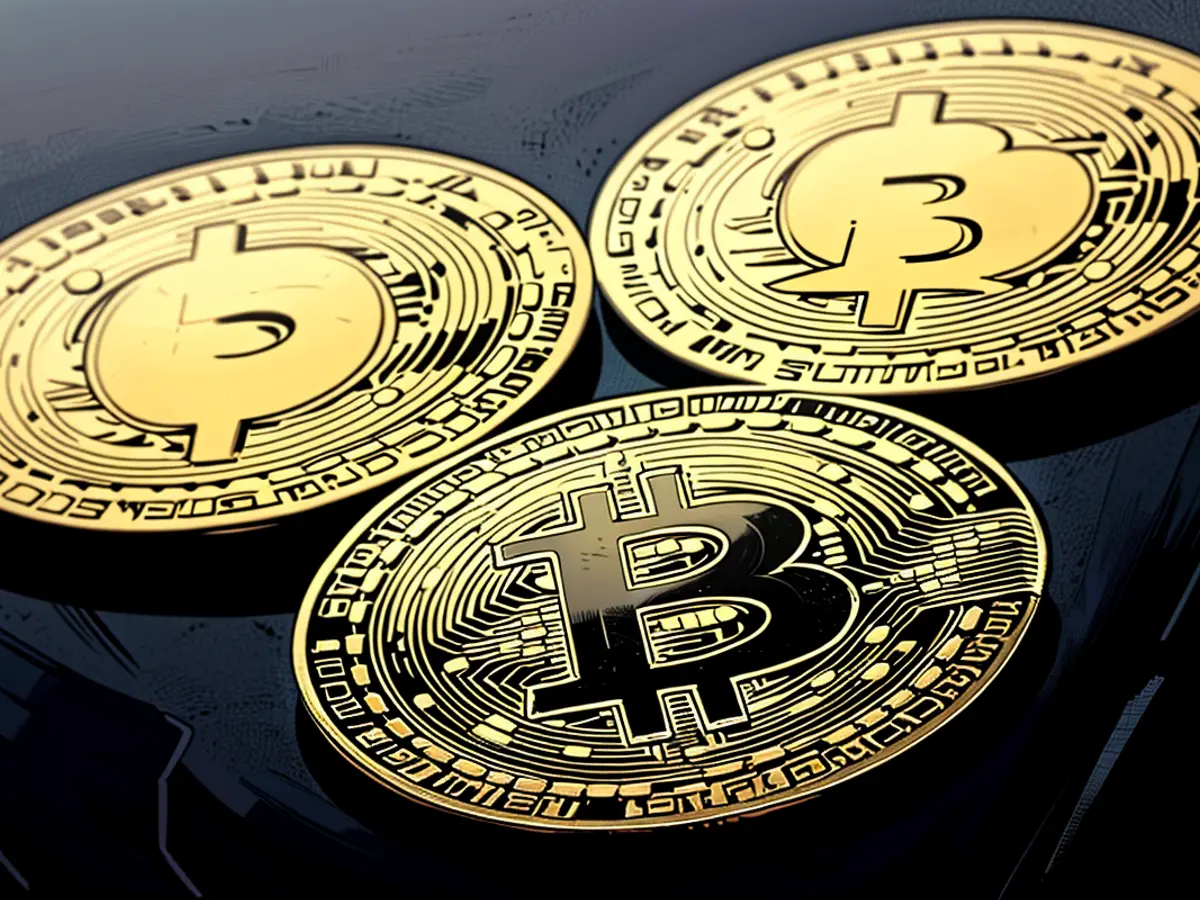Biden's visit to D-Day could signify the conclusion of an American generation.
This year, President Joe Biden will attend the 80th anniversary of the D-Day landings in France, which could be the last time significant numbers of veterans are present for such a commemoration. Even a 19-year-old who stormed the beaches on D-Day would now be 100 years old.
The memorial ceremony holds more significance than just a farewell to the surviving veterans of the 150,000 allied troops who created a foothold for Europe's liberation from Adolf Hitler's Nazis. World leaders from NATO countries gather at a time when they are both united and fearful. They must address the mission of opposing a war started by another tyrant intent on territorial expansion, this time in Ukraine. However, at no point since D-Day has the unwavering US leadership of the West and commitment to international values been so questioned. Democracy currently faces its most significant test in generations due to the rise of far-right populism on both sides of the Atlantic Ocean. Furthermore, geopolitical empires like Russia and China are challenging the global system shaped by Western values established after WWII.
The European countries, already uneasy over Donald Trump's repeated criticisms of NATO during his first term, were further unsettled by his recent claim that he would allow Russia to "do whatever the hell they want" with countries that he considered as failing to "pay their bills" on defense spending. This comment weakened the fundamental NATO belief of mutual self-defense, rendering the alliance meaningless. Some of Trump's former advisors have warned that he might consider leaving NATO if he wins a second term. Even if Biden wins the election, there are signs that the American commitment to offering security guarantees, even to former enemies like Germany and Japan who have experienced 80 years of peace since WWII, may be dwindling.
Trump's "America First" ideology has taken hold in the Republican Party, which once celebrated winning the Cold War. Now, some GOP figures led by the ex-president seem to show more empathy towards Russian President Vladimir Putin than the European democracies that the US rebuilt after WWII. Additionally, the lengthy delay in allocating funds for Biden's latest aid package for Ukraine raises concerns over Washington's willingness to maintain security and defend democracy in Europe against autocratic aggression.
As Biden recognizes and honors the sacrifice of US, British, Canadian, and other troops involved in Operation Overlord, he will walk among rows of white crosses and Stars of David, surrounded by pine trees and oaks overlooking Omaha Beach. More than 9,000 fallen Americans from all 50 states and the District of Columbia are buried here, far from their homeland.
Is America really back?
Biden entered office with the belief that "America is back" and assumed an influential role in global affairs. His term has seen the most effective Western alliance leadership since President George H.W. Bush ended the Cold War. Nevertheless, European leaders are concerned that Biden's time in power might be a temporary phase of stability rather than a rejuvenation of the unquestionable US leadership. The erratic nature, mistrust of alliances, and admiration for dictators displayed by Trump's first term transformed the US from a stabilizing force to a disruptive one. Despite a history of denial, many European governments expect a return of Trump.
The combination of isolationism and populism was not born overnight. It evolved from years of failed US military involvement in countries like Iraq and Afghanistan and a growing perception among Americans that their role in the globalized world was causing a decline in prosperity and security built on the sacrifices made during WWII. This has sparked discussions in certain European capitals about taking more responsibility for their own security.
Charles Kupchan, a senior fellow at the Council on Foreign Relations, suggests that the internal threat to the West is as grave as the external threat posed by US adversaries. "And it's not just Trump," he said. "It's also what's happening to the political center in France, the political center in Germany, the likely gains of the far right in the upcoming EU elections. Europeans are asking tough questions about American reliability."
No guarantee of success
Although the Normandy landings are often portrayed as a triumph, they were once a risky endeavor. The deadline to execute the D-Day landing was questionable, and the hardened Nazi forces were formidable opponents. As allied troops stormed the beaches, President Franklin Roosevelt prayed for their success: "Almighty God: Our sons, pride of our nation, this day have set upon a mighty endeavor, a struggle to preserve our Republic, our religion, and our civilization, and to set free a suffering humanity."
Initially, it seemed like the failure concerns were justified. Until the end of June 6, none of the invading forces accomplished their first-day objectives. Over 10,000 individuals were either killed, wounded, or missing. The Supreme Allied Commander in Europe, Gen. Dwight Eisenhower, had prepared a message before the invasion in case of a retreat. "If any blame or fault attaches to the attempt, it is mine alone," he wrote. But Eisenhower never needed to take out his statement. In the following days, the allies gradually gained a foothold on the northwestern tip of the continent. Upon breaking out, they reached Paris by August, and after extensive combat, Europe's victory was won by May 1945.
For a long time after World War II, D-Day celebrations lacked the celebration and diplomatic and political importance they have today. Some argue that the geopolitical symbolism is becoming too weighty and threatens to overshadow the simple valor of dwindling groups of veterans who travel to honor their lost comrades. However, French and American presidents, in particular, have used the gatherings as a platform to renew transatlantic connections. This time, Western leaders will be joined by Ukrainian President Volodymyr Zelensky, who has labeled his nation's fight for survival after the Russian invasion as a mirror image of the Allied battle against Hitler.
Russian officials or top-level executives have also attended the commemorations since the end of the Cold War, in honor of the Soviet Union's substantial losses in fighting the Nazis. But Putin, who is now a pariah, has not been invited.
This year's event has critical implications for several leaders. It will mark the first of the decennial commemorations to include King Charles III of Britain as the head of state since the death of his mother, Queen Elizabeth II, who used to frequent Normandy frequently. Additionally, it serves as a platform for French President Emmanuel Macron and Biden, both of whom are politically weakened, to showcase their statesmanship during times of global chaos.
Biden will echo one of his predecessors, Ronald Reagan, who, in 1984, visited a clifftop 100 feet high known as Pointe du Hoc. Scaled in a daring raid by US Army Rangers on D-Day, the Rangers seized German artillery pieces that could have caused significant damage to the Omaha and Utah invasion beaches.
Reagan stood in front of a stone memorial in the shape of the Rangers' emblem, with his back to the Channel, surrounded by surviving veterans of the raid. He delivered one of the greatest presidential speeches. "These are the boys of Pointe du Hoc. These are the men who took the cliffs. These are the champions that helped free a continent. These are the heroes who helped end a war," Reagan said. He later wrote in his diary that he was so moved it was difficult to speak.
The speech occurred at a contentious moment in the Cold War, with tensions high between Washington and the Soviet Union. However, Reagan's call for freedom may have had an impact. About a year later, Mikhail Gorbachev became secretary-general of the Soviet Communist Party and initiated reforms and nuclear arms negotiations that led to the end of the Cold War.
Biden, like Reagan, faces worries about his age during his reelection year. And on Friday, he will visit the same clifftop to make a similar plea to preserve democracy. Reagan's Pointe du Hoc speech in 1984 is not only famous for its poetry. Forty years later, it remains remarkably relevant to a new political era. And it's telling how far the Republican Party has shifted from the man who once epitomized it to the anti-democratic American Firstism of its current hero.
"We in America have learned bitter lessons from two World Wars: It is better to be here ready to protect the peace, than to take blind shelter across the sea, rushing to respond only after freedom is lost," Reagan said. "We've learned that isolationism never was and never will be an acceptable response to tyrannical governments with an expansionist intent."
He went on: "We are bound today by what bound us 40 years ago, the same loyalties, traditions, and beliefs. We're bound by reality. The strength of America's allies is vital to the United States, and the American security guarantee is essential to the continued freedom of Europe's democracies. We were with you then; we are with you now. Your hopes are our hopes, and your destiny is our destiny."
In 1984, Reagan could make that commitment without any uncertainty. Biden cannot make the same promise in 2024.
Read also:
The memorial ceremony at D-Day could serve as a reminder for President Biden about the importance of maintaining the US's commitment to international values, especially in light of the challenges posed by far-right populism and geopolitical empires like Russia and China.
The "America First" ideology, which has taken hold in the Republican Party, has raised concerns among European leaders about the reliability of the United States as a security guarantee, potentially leading to some European governments taking more responsibility for their own security.
